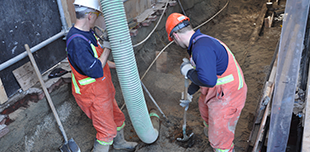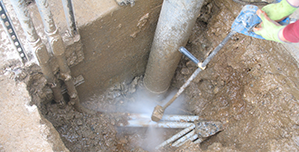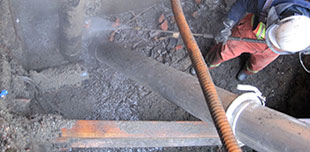The sump pump is a specially designed pumping apparatus that is commonly used to rid sumps of accumulated water while also ensuring that they remain clear of dirt and debris. After submerging it into the water, the pump effectively disposes sumps of all traces of water, dirt and other residual matter that they accumulate over time. This makes it highly effective in clearing out certain areas of the house that have a high tendency of becoming waterlogged – particularly house basements.
Moreover, as the pump is truck-mounted, the entire pumping unit is mobile and can be transported around quickly and without much labor. Therefore, the presence of multi-purpose pump trucks in their fleet of trucks in itself assures that it takes a significantly shorter time for sump cleaning services to respond to the distress call of customers. These mobile units also have a truck-mounted storage tank that saves time by directly collecting the pumped water and debris from sumps.
Edenflo Pump Truck Services is a family-owned and run business that commands a fleet of modern state-of-the-art multipurpose pump trucks. It provides sump cleaning services to commercial and residential customers in the Lower Mainlands of Canada, particularly in Vancouver, Richmond, Delta, Surrey, Langley, New Westminster, Burnaby, North & West Vancouver, Aldergrove and White Rock.
Edenflo is among the few Canada-based pump truck businesses that have earned a reputation for providing prompt and high-quality cleaning solutions to their sewer/drainage problems. With years of experience under their belt, Edenflo employs a team of experienced and knowledgeable professionals who guarantee 100% customer satisfaction.








